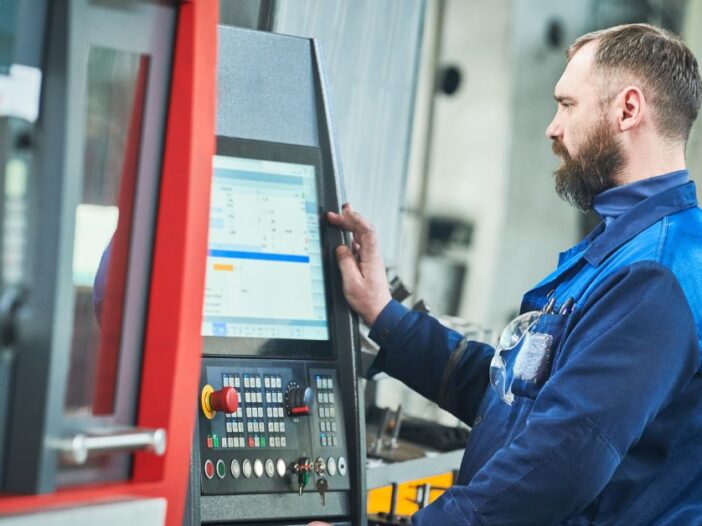
Precision machining is a technological marvel that has revolutionized manufacturing processes in various industries. Precision machining involves the use of advanced machinery to cut, shape, and finish materials according to exact specifications with minimal tolerance for error.
Below, we explain how precision machining technology works, its advantages, and the industries that utilize precision machining.
Table of Contents
The Technology Behind Precision Machining
The backbone of precision machining lies in its state-of-the-art technology. This includes computer numerical control (CNC) machines that perform complex cutting operations automatically. It’s known in manufacturing that if you want to improve accuracy in machined parts, you’ll need to upgrade to more advanced technology like CNC machines.
Innovations in software have also propelled precision machining forward. Computer-aided design (CAD) and computer-aided manufacturing (CAM) software allow engineers and machinists to create highly detailed plans for greater accuracy in machining. These programs facilitate the visualization of end products and the simulation of machining processes, ensuring optimal outcomes before physical production even begins.
Why Precision Machining Is Common in So Many Fields
The advantages of precision machining are manifold. First and foremost, it enhances product quality by producing components with unparalleled accuracy. This level of precision is vital in industries where even the slightest deviation can lead to catastrophic failures.
Another advantage of precision machining is that it significantly reduces manufacturing time. The automation of machining processes allows for faster production cycles without compromising quality. This efficiency translates to cost savings, as less time is spent on rework or corrections.
Industries that Rely on Precision Machining
Now that we’ve explored the basics and advantages of precision machining, it’s easy to see why it’s common in so many manufacturing fields, but which industries utilize it the most?
Aerospace
The aerospace industry relies on precision machining to produce critical components for aircraft and spacecraft. These parts must withstand extreme conditions and perform flawlessly, making precision machining indispensable.
Moreover, the aerospace industry is constantly evolving, with new materials and designs frequently emerging. Precision machining allows manufacturers to adapt quickly and produce complex components with precision.
Automotive
In the automotive sector, carmakers use precision machining to manufacture engine parts, transmission components, and other critical elements. The accuracy and consistency provided by precision machining ensure vehicles operate safely and efficiently. It also enables manufacturers to keep up with the fast-paced nature of the industry, where new designs are constantly introduced.
Medical Manufacturing
Surgical instruments, implants, and diagnostic equipment are just a few examples of medical devices that require precise manufacturing. Given the life-or-death nature of medical applications, the importance of precision machining cannot be overstated. As medical technology advances rapidly, precision machining enables the production of innovative and life-saving devices.
Electronics
The electronics industry also benefits from precision machining. Components such as microchips, connectors, and circuit boards demand high levels of accuracy to function correctly.
Precision machining produces these tiny, intricate parts that power our modern digital world. As the demand for smaller and more powerful electronics continues to grow, precision machining will continue to play a crucial role in meeting industry requirements.
As you can see, precision machining is a cornerstone of modern manufacturing, enabling the production of reliable components across various industries. As industries push the boundaries of innovation and performance, precision machining will undoubtedly remain a critical enabler of progress.